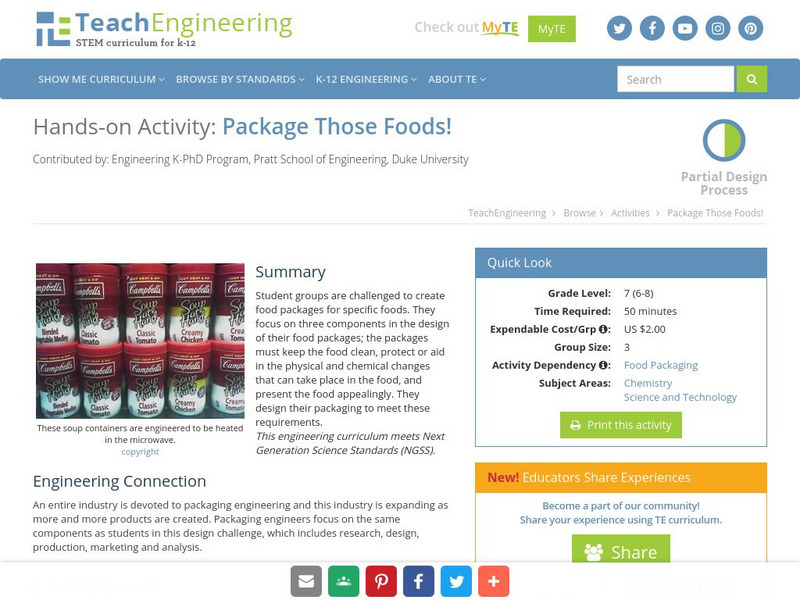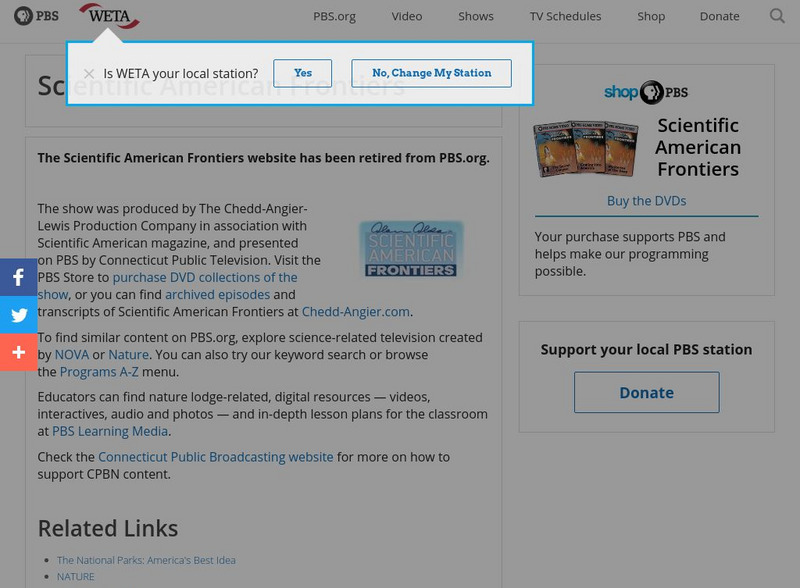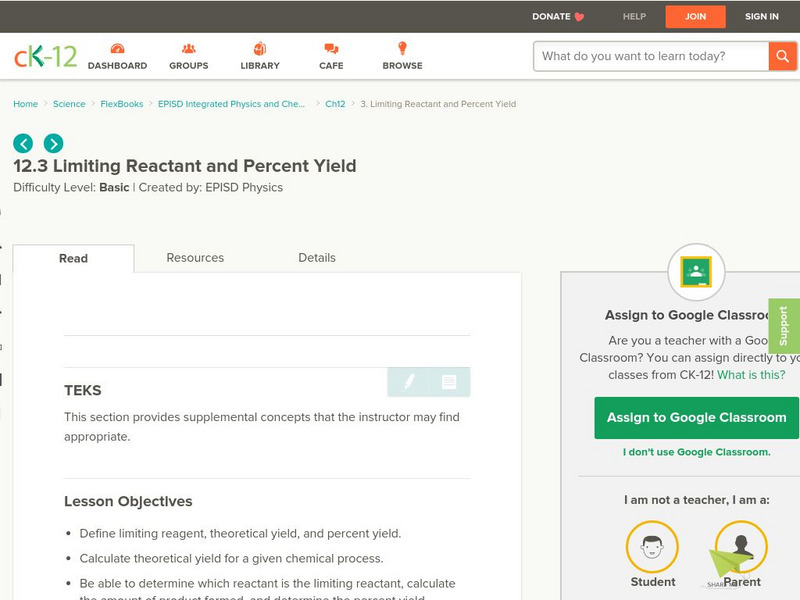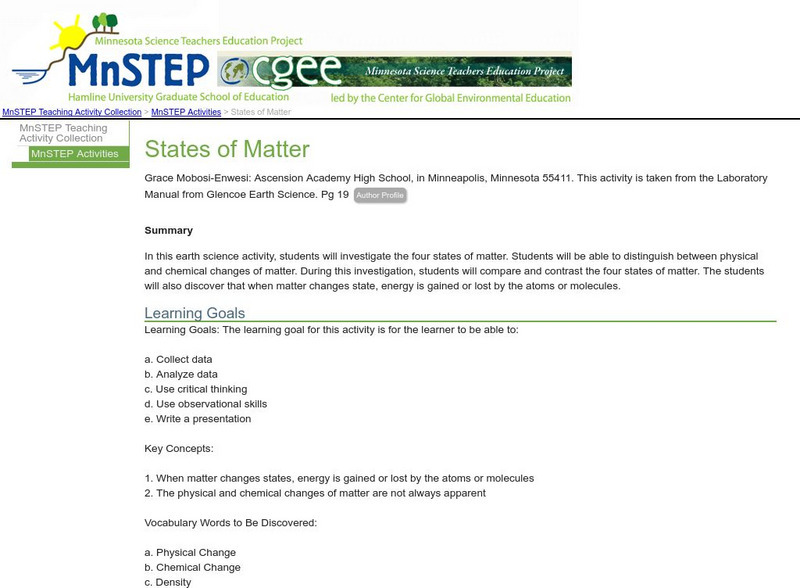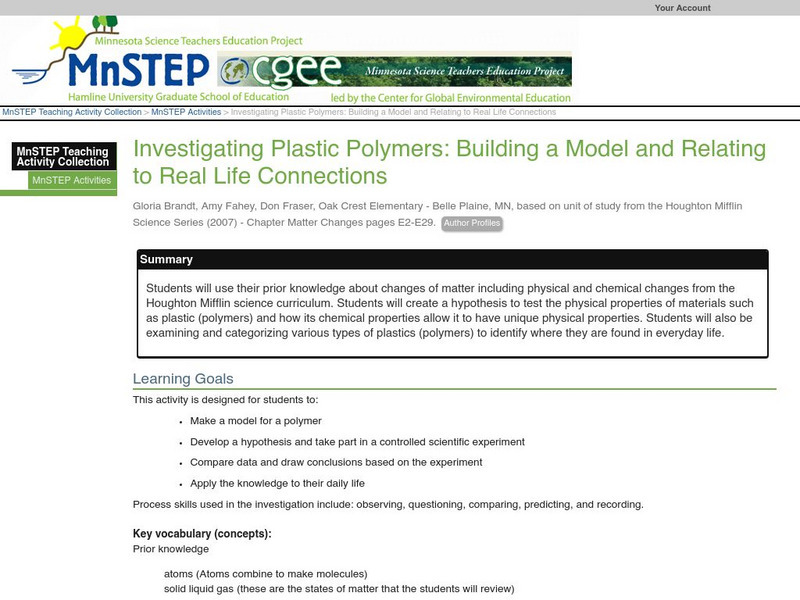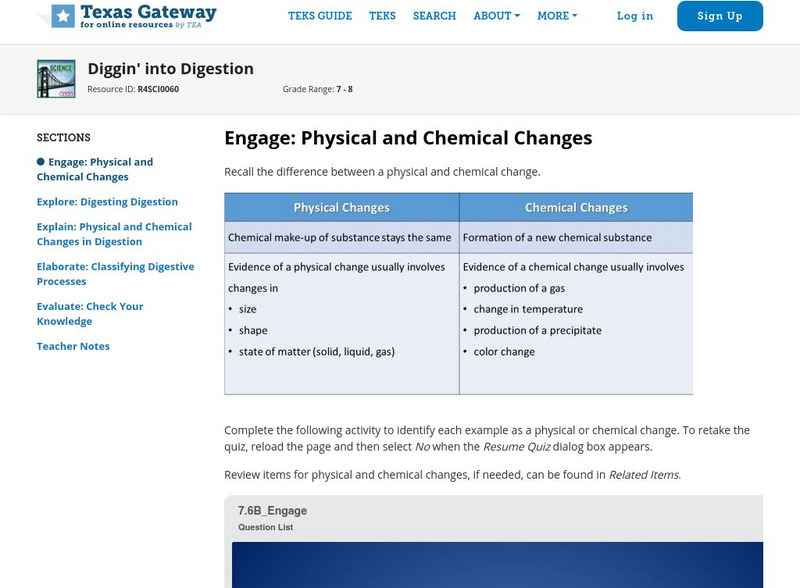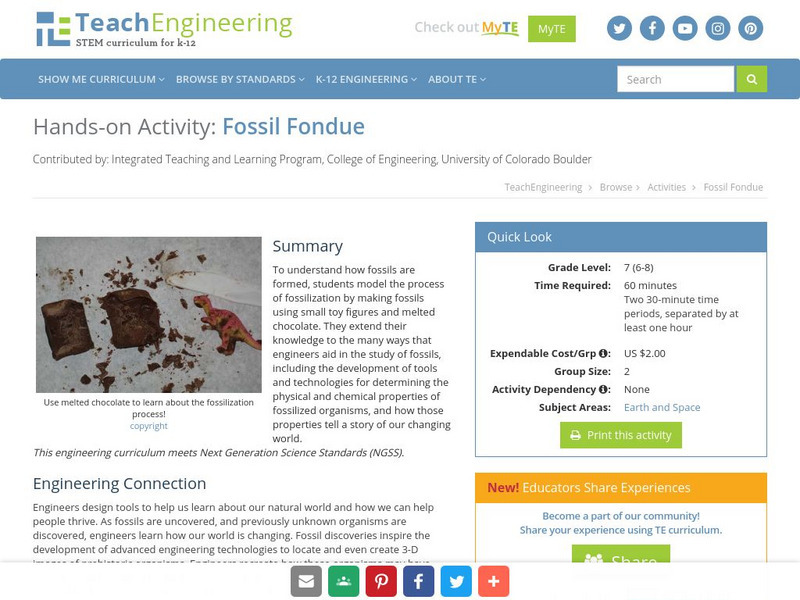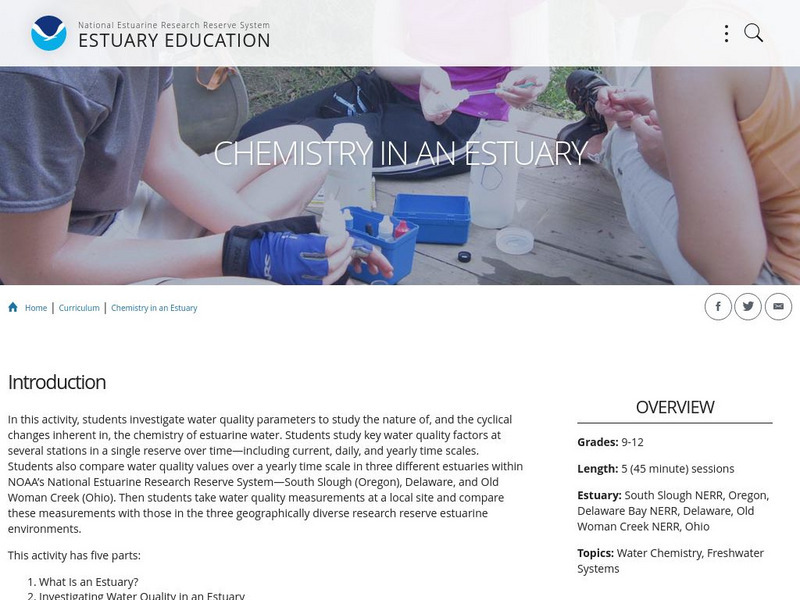Hi, what do you want to do?
Maryland Science Center
Maryland Science Center: Shrinky Dink Charms [Pdf]
Use recycled plastic to make shrinky dink jewelry and decorations.
TeachEngineering
Teach Engineering: Package Those Foods!
This activity provides students with the opportunity to create a food package for a specific food. The students have three components to focus on in the design of their food package. The package will have to keep the food clean, protect...
Children's Discovery Museum
Children's Discovery Museum of San Jose: Ice Exploration
Provides fun ideas for exploring how to transform ice using shapes, light, and color.
PBS
Pbs Teachers: About All You Can Eat: Truth or Consequences
Demonstrate how calories are measured by building a calorimeter to measure the transfer of heat energy during a chemical or physical change. Test and record data on the calories in a peanut.
CK-12 Foundation
Ck 12: Limiting Reactant and Percent Yield
[Free Registration/Login may be required to access all resource tools.] Students will compare theoretical yield to actual yield, and then investigate what happens when one reactant runs out before the other reactants are fully consumed....
Science Education Resource Center at Carleton College
Serc: Mn Step: States of Matter
In this activity, students investigate physical and chemical changes in the states of matter for water. They collect data and record their observations.
Science Struck
Science Struck: Can Diamonds Be Melted or Dissolved?
While diamonds are extremely hard and strong, they are not indestructible. Learn how diamonds can be burned, melted, or dissolved.
Science Education Resource Center at Carleton College
Serc: Investigating Plastic Polymers: Building a Model
Students will use their prior knowledge about changes of matter including physical and chemical changes from the Houghton Mifflin science curriculum. Students will create a hypothesis to test the physical properties of materials such as...
Texas Education Agency
Texas Gateway: Diggin' Into Digestion
In this lesson, students learn about physical and chemical changes during digestion through a variety of activities.
TeachEngineering
Teach Engineering: Fossil Fondue
To understand how fossils are formed, students model the process of fossilization by making fossils using small toy figures and melted chocolate. They extend their knowledge to the many ways that engineers aid in the study of fossils,...
NOAA
Noaa: Estuaries 101 Curriculum: Chemistry in an Estuary
This activity introduces students to the complex chemistry of estuarine water. Students investigate how chemical and physical water quality factors-pH, temperature, dissolved oxygen, and salinity-change and interact over varying time...
Science Education Resource Center at Carleton College
Serc: Polymers & Plastics: Classification & Models
Young scholars will use their prior knowledge about changes of matter including physical and chemical changes to examine and categorize various types of plastics (polymers). They will identify how their chemical properties allow them to...
ArtsNow
Arts Now Learning: States of Matter [Pdf]
In this lesson plan, students will move and generate choreography to understand different states of matter.
Other popular searches
- Physical and Chemical Changes
- Physical Chemical Changes
- Physical/chemical Changes
- Physical & Chemical Changes





![Maryland Science Center: Shrinky Dink Charms [Pdf] Activity Maryland Science Center: Shrinky Dink Charms [Pdf] Activity](https://static.lp.lexp.cloud/images/attachment_defaults/resource/large/FPO-knovation.png)
